Riding the SEA Investment Wave: Resilience, Innovation and the Road to 2025
SEA PE Startup Ecosystem Sustainability 6 minutes
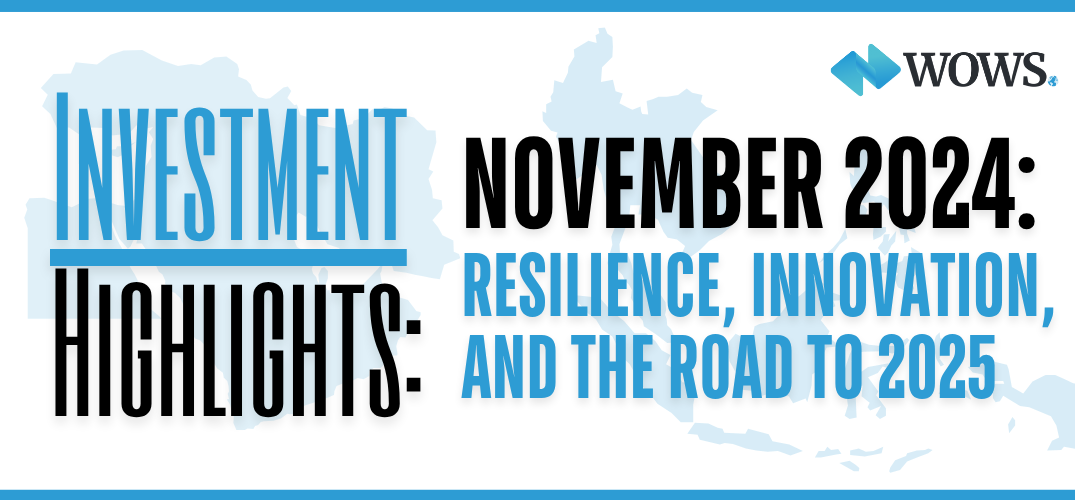
Southeast Asia’s private equity (PE) scene has been many things in 2024—resilient, inventive, and undeniably dynamic. The region is thriving on its unique cocktail of youthful demographics, government-backed initiatives, and a relentless startup spirit that refuses to quit, even in the face of global headwinds. As November wraps up, the headlines tell a compelling story: Southeast Asia is laying the groundwork not just for a strong 2025 but for a decade of transformative growth. Here’s how the month unfolded and what it signals about the road ahead.
SEA's November: Money Talks, Innovation Roars
Big Bets on the Future Government-led initiatives are setting the tone for 2024's close. Malaysia’s Digital Economy Corporation (MDEC), in partnership with Ascent and Central Capital Ventura (CCV), announced a hefty $45 million investment plan to nurture startups aligned with the nation’s KL20 vision. Across the border, Singapore doubled down on its ambitions, rolling out a $332 million fund to supercharge deeptech innovation while laying plans to incubate over 300 deeptech startups by 2030 through its National GRIP program. But governments aren’t the only players. Intudo Ventures closed $125 million across two funds, focusing on Indonesia’s middle class and sustainable industries, while Portcast bagged $6.5 million to push the boundaries of AI-powered supply chain solutions. These aren't just isolated wins—they’re indicative of a shift towards strategic, high-impact investments that promise long-term value.
Startups Turning Heads The startup space in SEA has proven fertile ground for fresh funding. DF Automation & Robotics ($1.85M) is leaning into the automation wave, building autonomous mobile robots that are revolutionizing intralogistics. BuzzAR ($1.16M) is merging travel with tech, creating platforms where storytelling meets seamless travel booking—a play that perfectly captures the region’s appetite for practical innovation. Coolmate, with Vertex Ventures’ backing, is tailoring its approach to sustainability, weaving eco-friendly materials into its apparel and capturing a growing market of conscious consumers. Meanwhile, Finfra's $2.5 million raise underscores the region’s push towards fintech solutions that cater to underserved markets.
Tech and Sustainability: The Winning Duo SEA’s appetite for digital innovation remains insatiable, but it’s not just about disruption anymore—it’s about responsibility. Wavemaker Partners' new $60 million fund is targeting enterprises and startups focused on deeptech and sustainability. Intudo's funds and Atome Financial's $200 million credit facility similarly reflect a focus on both profitability and impact. This pivot to purposeful innovation is mirrored in consumer trends. Across SEA, businesses are responding to a growing demand for ESG-friendly practices, whether through sustainable materials, renewable energy solutions, or AI-driven optimizations in logistics and fintech.
The Bigger Picture: What November Tells Us About 2025 The most striking narrative from SEA’s November activity isn’t just its volume but its direction. The region is signaling maturity, with fewer frenzied funding rounds and a clearer focus on scalable, impactful innovation.
- SEA as a Strategic PE Hub: The region is becoming a critical node in global PE strategies. Malaysia and Singapore are leading the charge with structured, government-backed initiatives that balance national goals with international investor confidence. This structured approach contrasts starkly with the startup frenzy of the mid-2010s, marking SEA’s evolution into a serious investment destination.
- From Seed to Scale: Early-stage funding remains active—DF Auto and BuzzAR are proof—but the real action lies in growth-stage investments. The $11 billion digital economy (up from $4 billion in 2022) highlights how SEA startups are turning ideas into robust, scalable businesses.
- Deeptech Takes Center Stage: Singapore’s $332 million fund and National GRIP program are clear signals that SEA is positioning itself as a deeptech powerhouse. While traditional tech sectors like fintech and e-commerce still dominate headlines, the next wave will come from sectors like advanced manufacturing, renewable energy, and health tech.
- Sustainability Isn’t a Trend—It’s a Mandate: The investments pouring into green technologies, sustainable materials, and ESG-driven businesses are a testament to SEA’s shift towards future-proofing its economy. Coolmate and Wavemaker’s targeted funds represent a broader regional pivot towards aligning innovation with global sustainability goals.
WOWS Insight: The SEA Investment Landscape for 2025 As 2024 gives way to 2025, three key themes will define the SEA private equity and startup ecosystem:
- Resilience in the Face of Headwinds: Global PE markets have faced significant challenges in 2024—rising interest rates, geopolitical tensions, and a tighter exit environment. Yet SEA has managed to grow, leveraging its youthful population, digital transformation, and government-backed initiatives. Expect this trend to continue, especially as global investors seek alternative growth markets.
- Collaborative Capital: The growing synergy between local and international players is one of SEA’s most exciting developments. From Gobi Partners' partnership with Japan’s Cross Capital to HSBC's $100 million credit facility for Funding Societies, SEA’s ability to attract and blend cross-border capital is only getting stronger.
- The Long Game: For investors, SEA offers the perfect mix of early-stage dynamism and growth-stage stability. With initiatives like Singapore’s National GRIP and Malaysia’s KL20 plan providing long-term frameworks, the region isn’t just a short-term opportunity—it’s a cornerstone of the next decade’s global investment landscape.
Final Thoughts
Southeast Asia is no longer a scrappy underdog in the world of private equity—it’s a strategic heavyweight. Startups are growing not just on bold ideas but on sound execution. Governments are stepping up with targeted funding and policy support. Investors are balancing profitability with purpose, recognizing that the region’s unique blend of innovation and responsibility is a winning combination.
If November’s activity is anything to go by, 2025 is set to be a banner year. The groundwork has been laid; now, it’s time for Southeast Asia to truly shine.
Related Posts
-
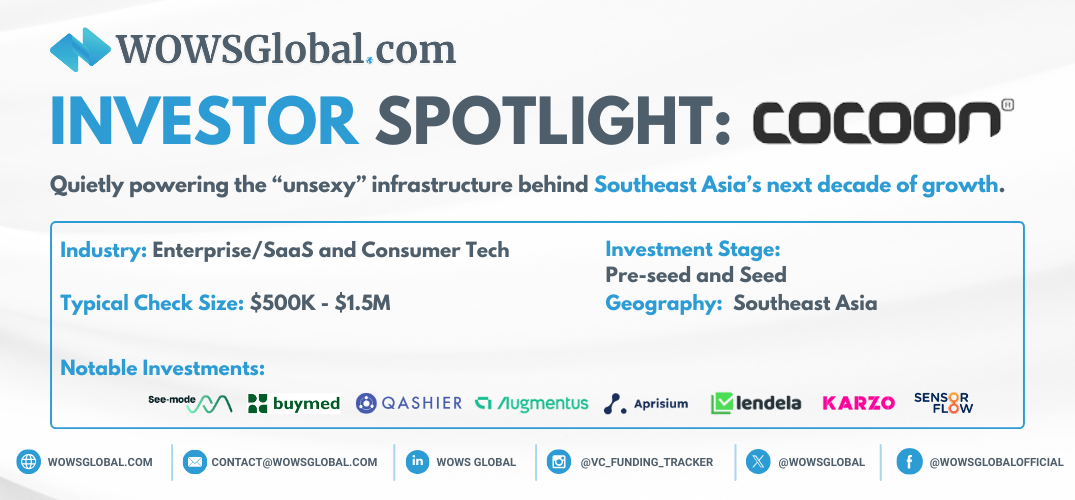
Capital SEA B2B ASEAN 7 Minutes
Cocoon Capital: Backing Southeast Asia’s Quiet B2B Revolution
From AI-powered stroke diagnostics to pharma distribution and SME payment rails, Cocoon Capital backs the “invisible” infrastructure powering Southeast Asia’s next wave of growth. This Investor Spotlight unpacks their B2B and deep-tech thesis, how they invest, and the founders they champion. -
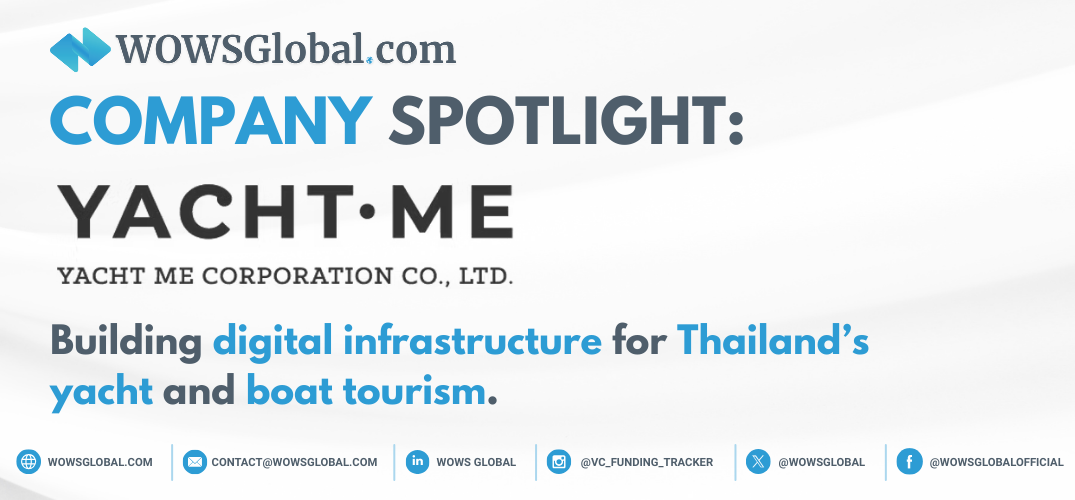
Tourism Travel SEA Tech 5 Minutes
Yacht Me Thailand: Digital Yacht Charter Platform for a Fragmented Market
Yacht Me Thailand is digitising yacht and boat charters across Thailand’s top marine destinations. With operator-first tools, sustainability at its core and ambitions to become a regional boating OTA, the platform is emerging as a notable travel-tech and marine tourism play. -
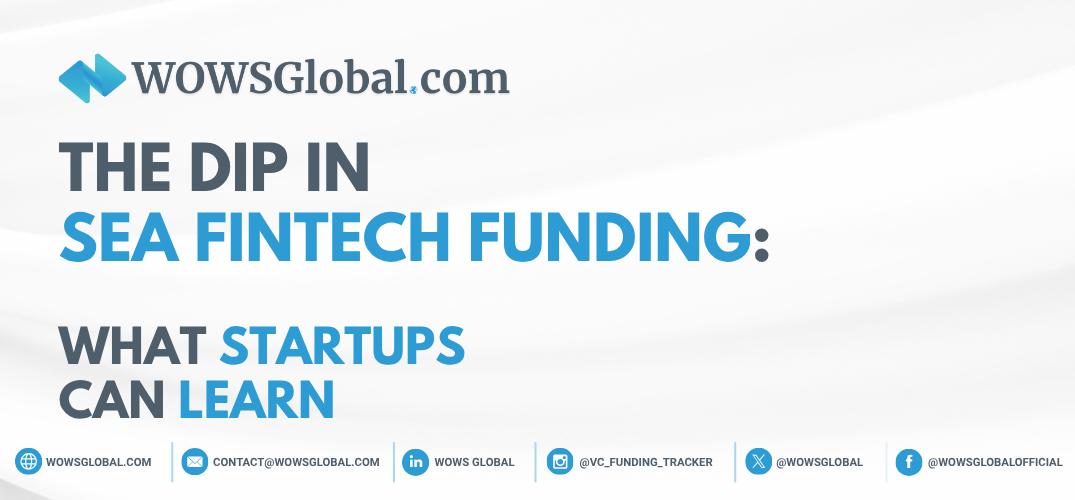
Fintech AI Startups Early Startups SEA 4 Minutes
The Dip in SEA Fintech Funding: What Startups Can Learn
SEA fintech funding has dipped, but capital is still on the field for disciplined teams. This article unpacks what the new funding rules look like and how founders can upgrade models, governance, monetization, and capital stacks. Learn where investor expectations have shifted and how WOWS Global can help you get raise ready. -
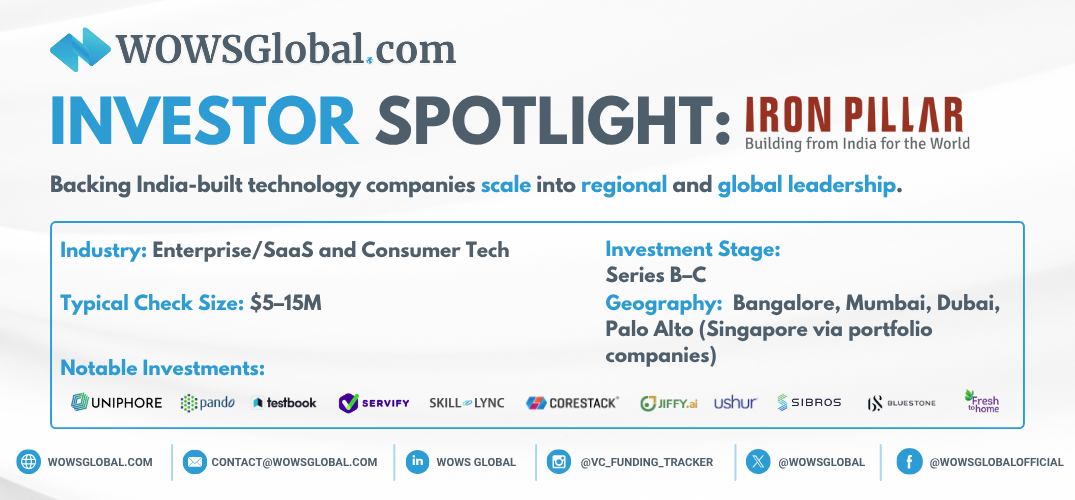
Series B Singapore SEA India 5 Minutes
Iron Pillar: Scaling India-Built Tech Into Southeast Asia
Iron Pillar is a venture-growth firm backing India-built technology as it scales across Southeast Asia. This spotlight covers stage focus, typical checks (US$5–15M), sectors, SEA go-to-market via Singapore, and notable portfolio patterns in SaaS and platforms. For founders and co-investors, it’s a practical guide to where Iron Pillar fits, and how to engage. -

SEA Startup & Venture Capital Proptech Media 4 Minutes
Catcha Group: Company-builders Powering SEA’s Internet Plays
Catcha Group has spent two decades building and backing Southeast Asia’s internet champions, from classifieds and OTT to flexible workspaces. With hands-on operating support and smart consolidation plays, the firm has turned category leaders into headline exits. -
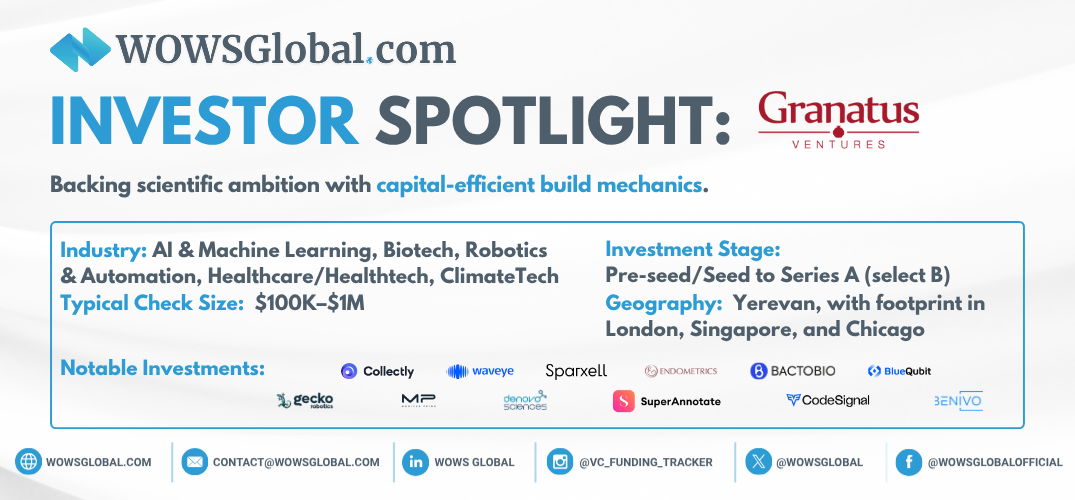
Biotech AI SEA Startup & Venture Capital deep-tech 6 Minutes
Granatus Ventures: Deep-Tech Builders Bridging Armenia and Southeast Asia
Granatus Ventures backs IP-rich startups in AI, biotech, robotics, and advanced/quantum computing, pairing early checks with an Armenia engineering engine and a Singapore touchpoint for SEA pilots. Learn how their SDG-aligned thesis translates into practical capital and deep technical diligence.
